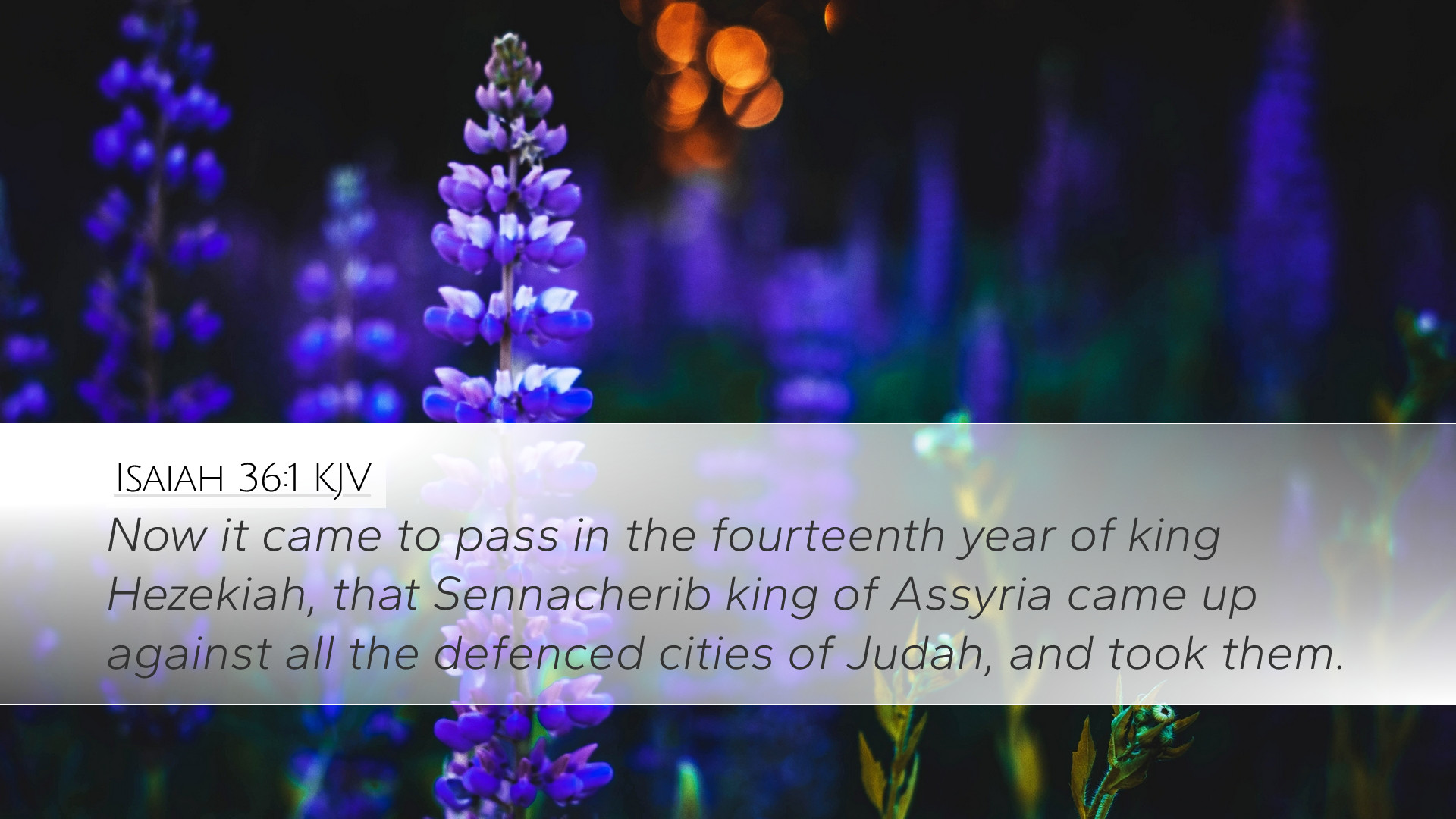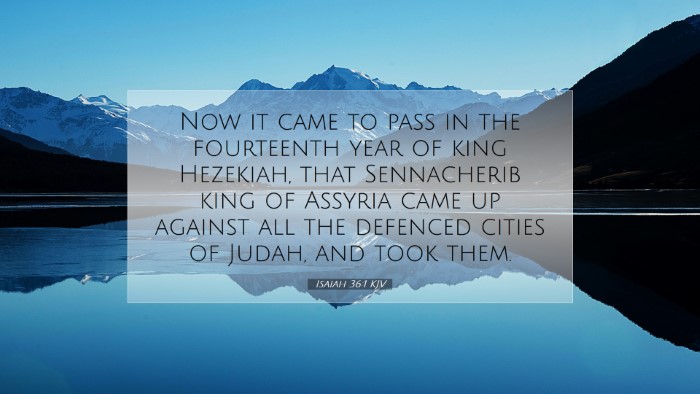Isaiah 36:1 Commentary
Isaiah 36:1 serves as a pivotal moment in the narrative of the Book of Isaiah, marking the commencement of a crucial historical interaction between the Assyrian empire and the kingdom of Judah. In this verse, we encounter the Assyrian king Sennacherib's military campaign against Jerusalem, which sets the stage for the subsequent theological and narrative developments that follow.
Contextual Background
The opening of chapter 36 takes place in the fourteenth year of King Hezekiah's reign. The historical context is imperative for understanding the political and spiritual climate of Judah at this time. Sennacherib's invasion serves as a significant challenge to Hezekiah's reign and reflects wider themes of trust, covenant faithfulness, and divine intervention.
The Assyrians were known for their aggressive expansion and were seen as a formidable power by neighboring nations. This geopolitical pressure forces Hezekiah into a position of vulnerability, prompting questions about faith and reliance on God amidst overwhelming odds.
Insights from Commentaries
Matthew Henry
Matthew Henry provides a thorough examination of the events leading to Sennacherib's siege. He emphasizes the importance of the timing of God’s deliverance, affirming that crisis reveals the heart of God's people. Henry notes that instead of relying on alliances with other nations, God’s people should look towards Him in their distress. He sees this episode as a test of King Hezekiah’s faith and obedience, highlighting that the trials faced may ultimately lead to greater trust in divine providence.
Albert Barnes
Albert Barnes, in his commentary, stresses the historical implications of the Assyrian invasion. He points out that Sennacherib’s attack was not just a military campaign but also an ideological one, as it sought to undermine the faith of the people of Judah. Barnes elaborates on the confidence the Assyrians had in their military prowess and their assumptions regarding the inability of God to rescue those whom they besieged. This theme challenges readers to consider their own responses to theological and existential crises.
Furthermore, Barnes makes note of Hezekiah's initial reactions, suggesting that the king’s measures to prepare for the invasion reflect a combination of prudence and piety. He cites how Hezekiah attempted to fortify Jerusalem and strengthen his defenses, yet with a recognition of God’s sovereignty over the situation.
Adam Clarke
Adam Clarke offers a rich historical background within his commentary, affirming that the siege of Jerusalem by Sennacherib was a serious threat not only to the political integrity of Judah but also to the religious identity of God's people. He emphasizes the consequences of relying on human might versus divine assistance, linking it to the prevailing principles of covenant faithfulness.
Clarke notes how the Assyrian commanders spoke blasphemously against God. This aspect highlights a theological confrontation in the narrative, posing a question: Can human forces truly stand against the Almighty? Clarke adeptly connects these occurrences to the larger prophetic themes within Isaiah, where the ultimate triumph of God's kingdom is assured.
Theological Implications
The encounter depicted in Isaiah 36:1 raises essential theological questions regarding the nature of faith under duress. The events challenge readers to examine their understanding of God's presence in times of suffering and uncertainty. The refusal to succumb to fear illustrates the ongoing struggle between faith and doubt in the midst of crisis, a theme resonant throughout scripture.
Moreover, the verse sets the stage for God's redemptive purposes, reminding readers of His sovereignty even in the face of adversarial forces. As theologians reflect on this passage, they recognize that it serves as a precursor to God’s miraculous deliverance of Jerusalem, encapsulating the essence of the overarching biblical narrative related to salvation history.
Conclusion
Isaiah 36:1 represents a dramatic intersection of faith, power, and divine sovereignty. The insight drawn from the commentaries of Henry, Barnes, and Clarke provides pastors, students, theologians, and scholars with a robust framework for understanding the complexities of this critical moment in biblical history. This passage serves as a powerful reminder of the need for steadfast faith in God and the assurance of His divine intervention in times of need.


